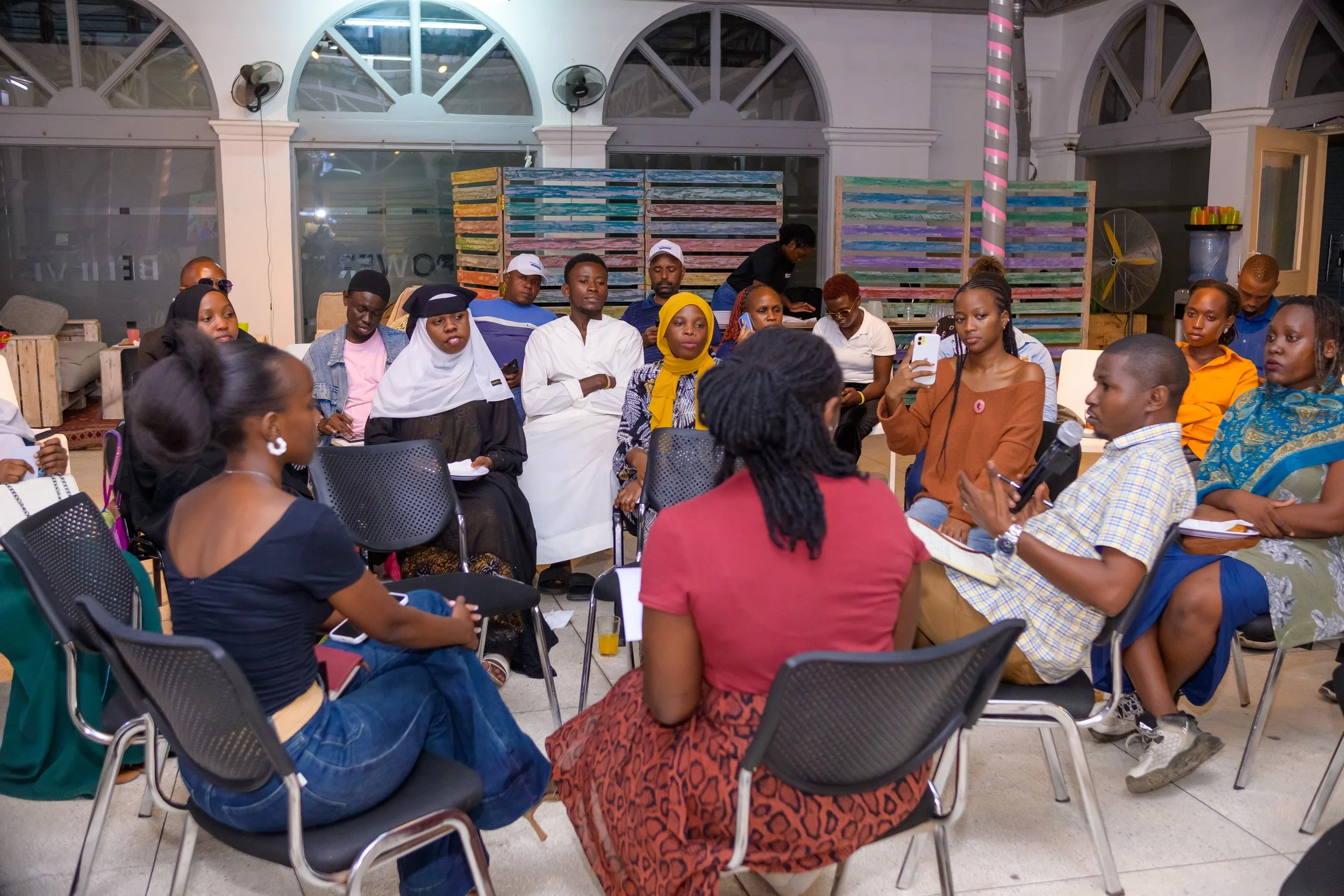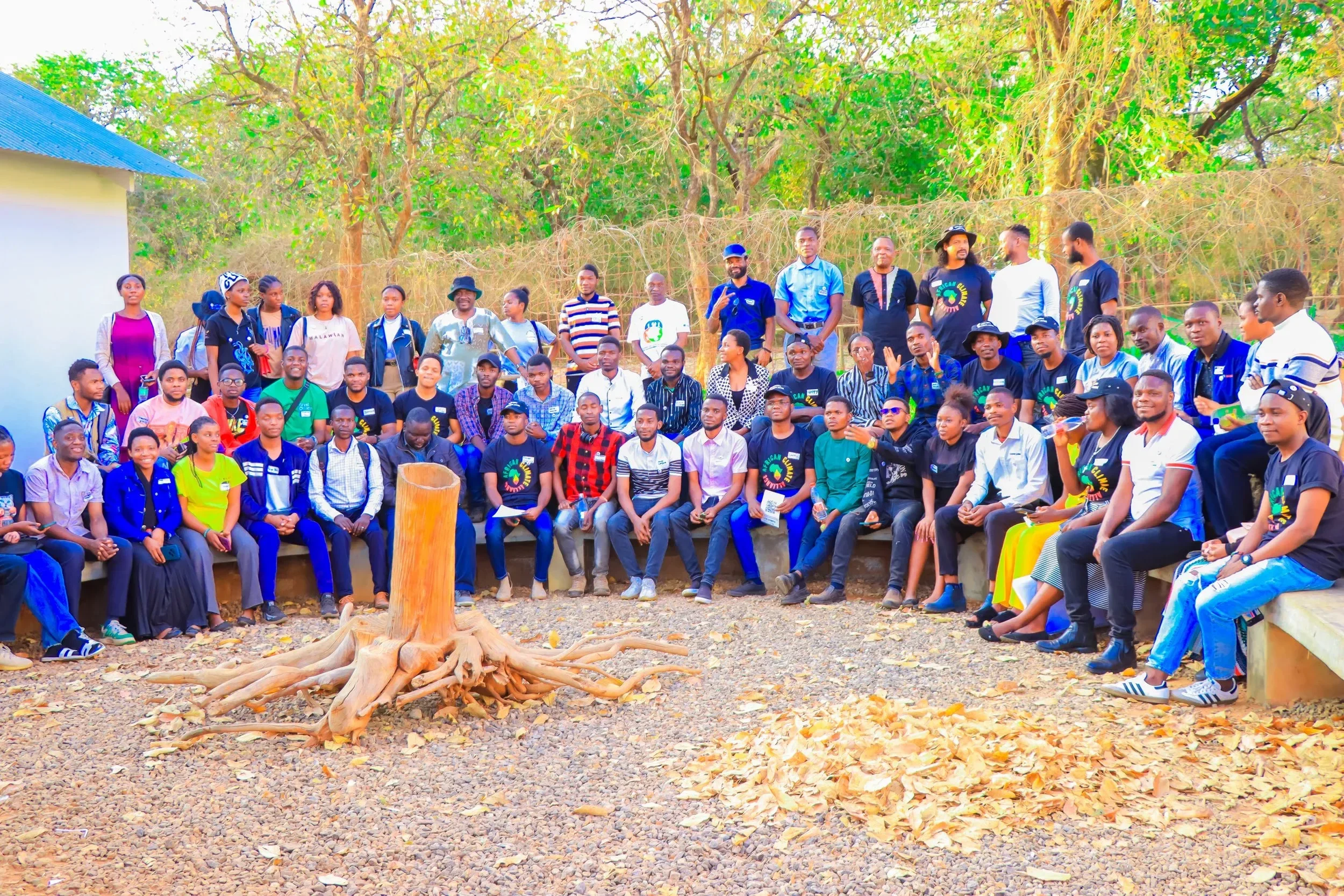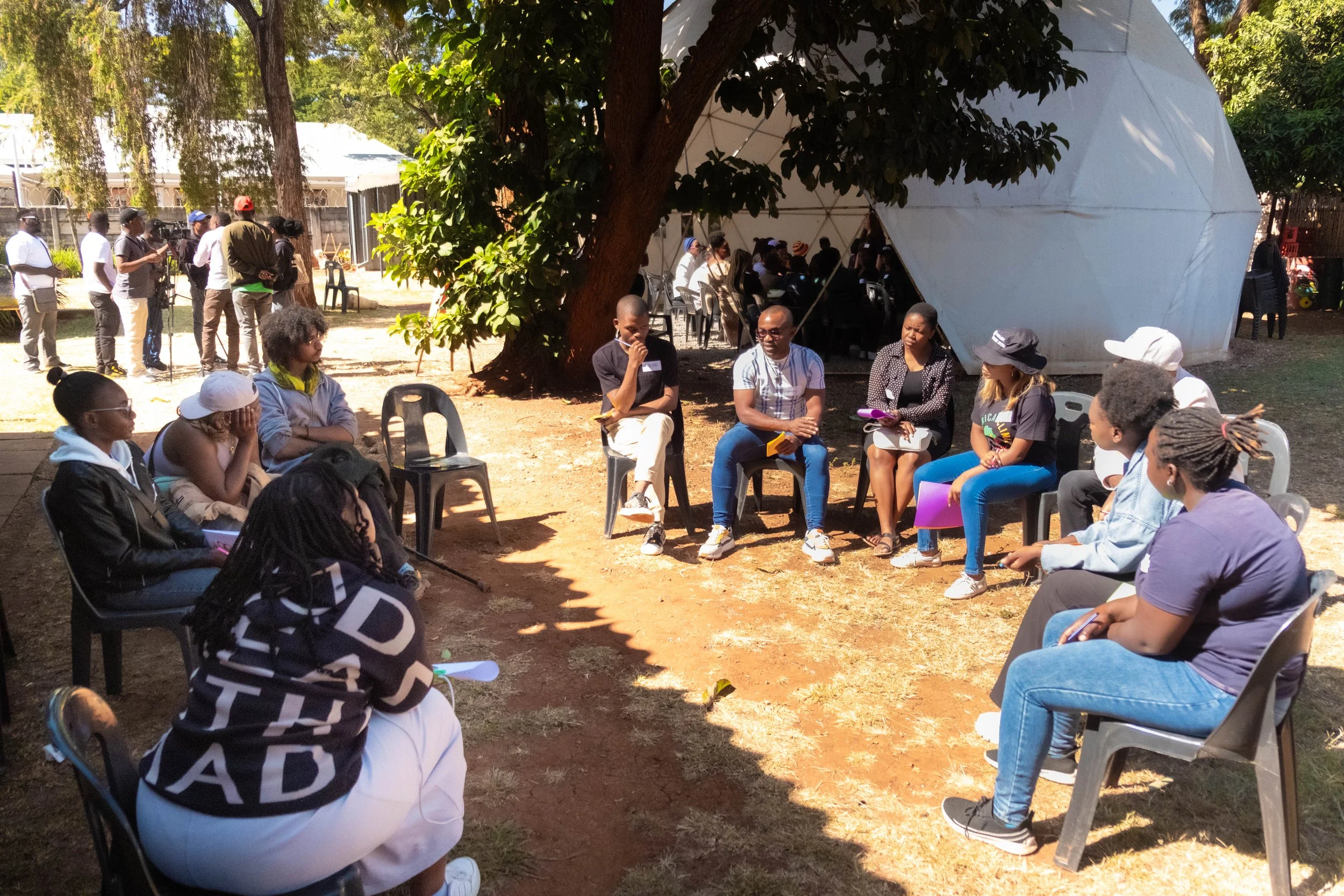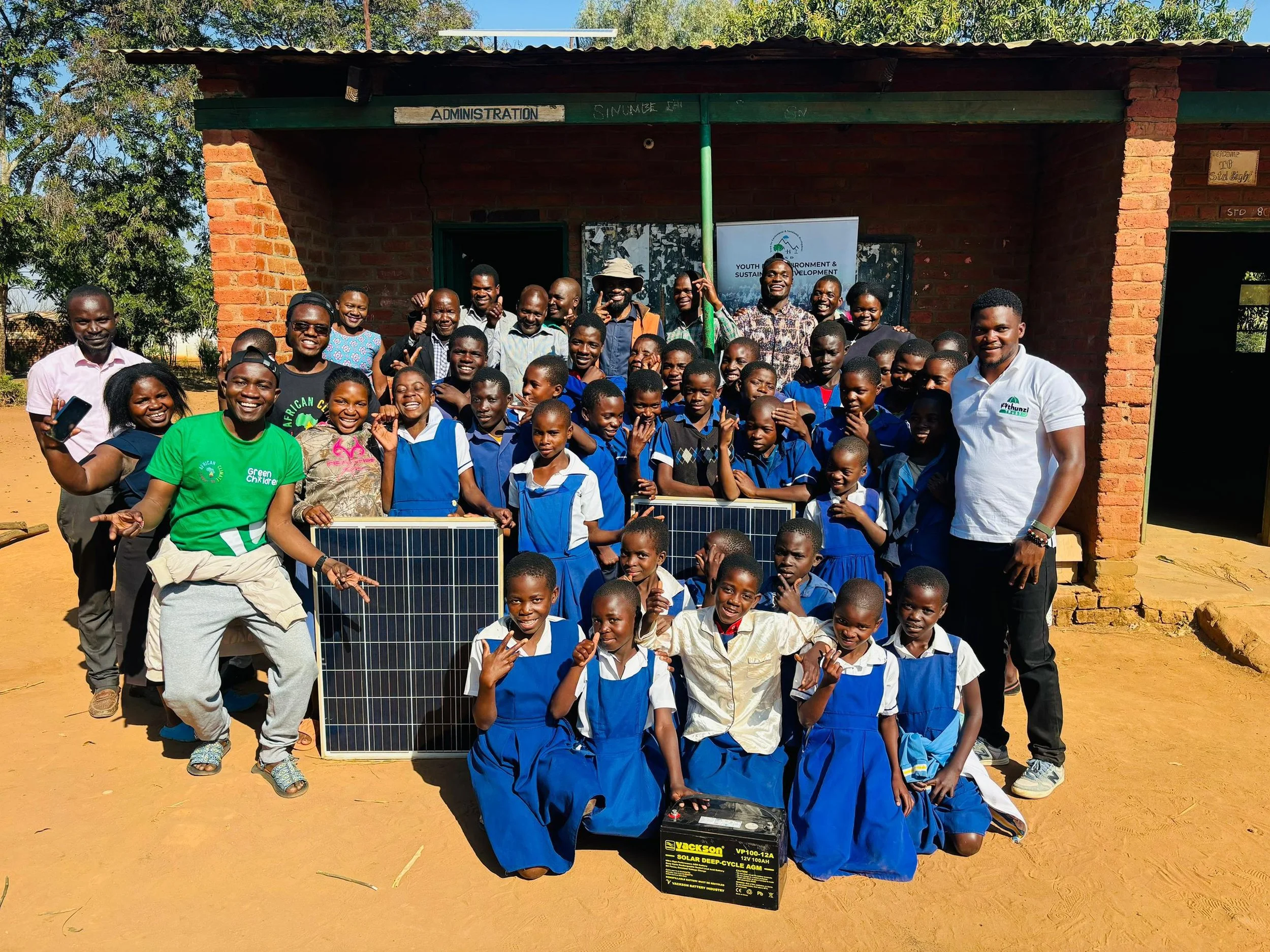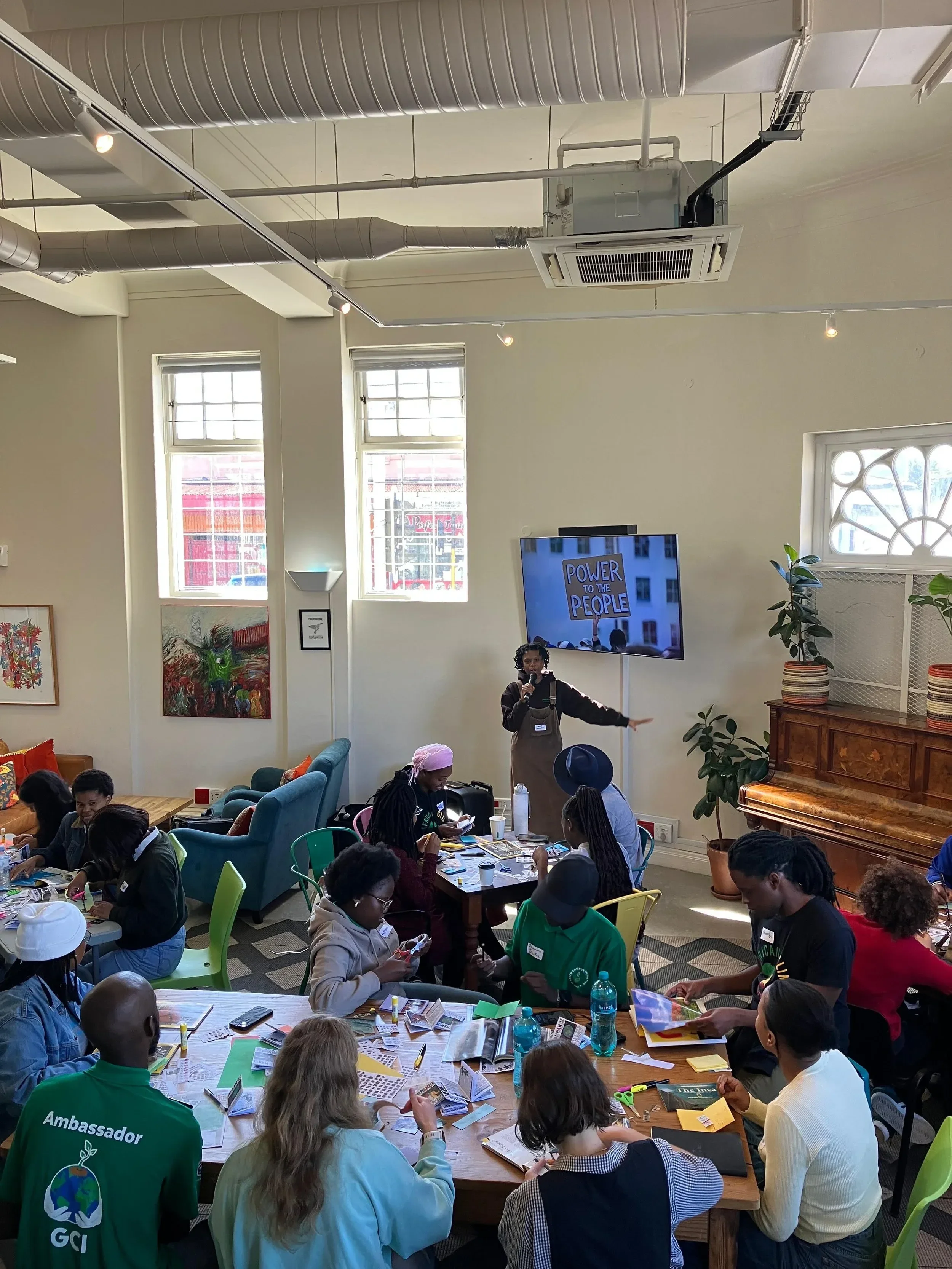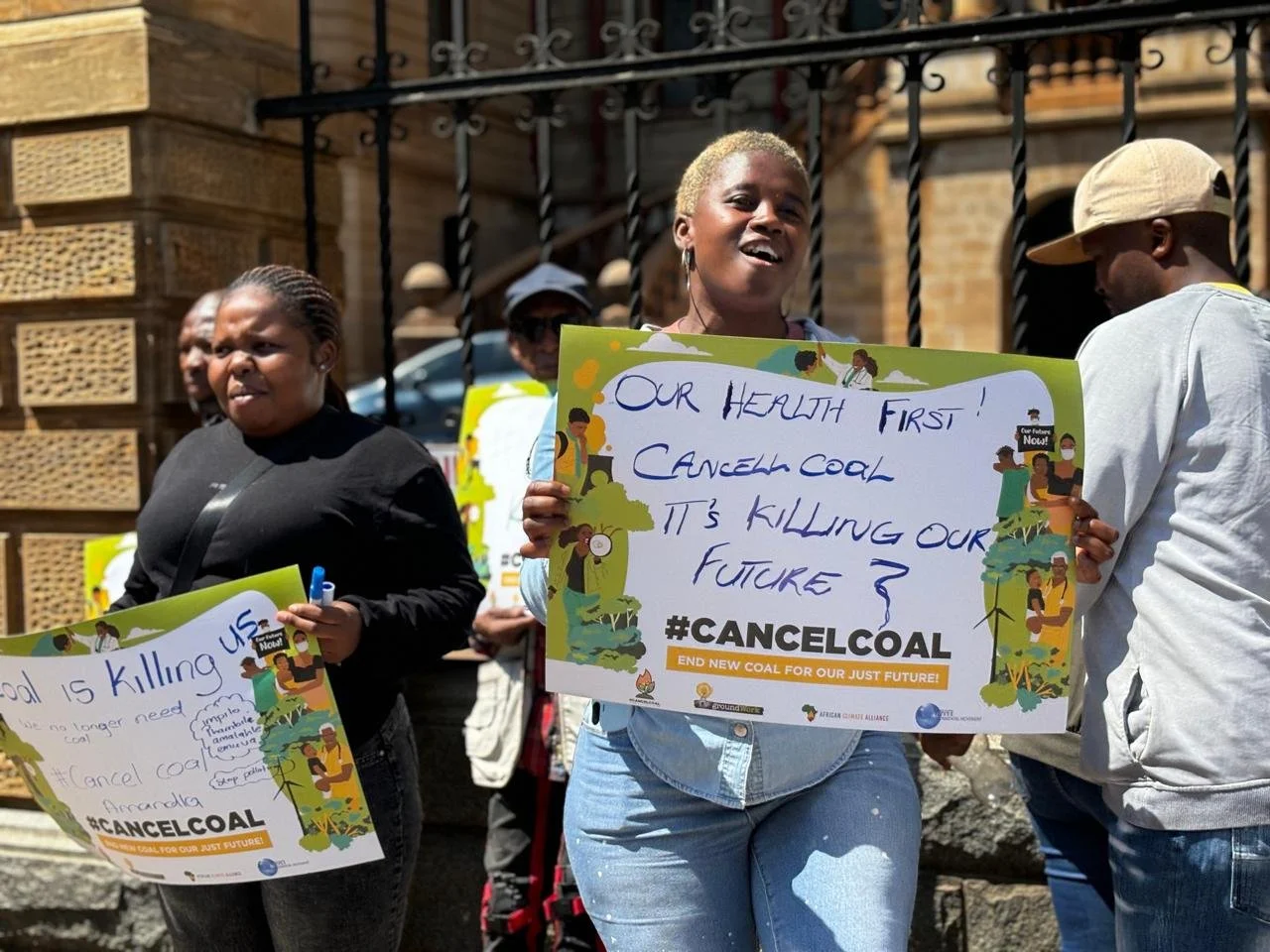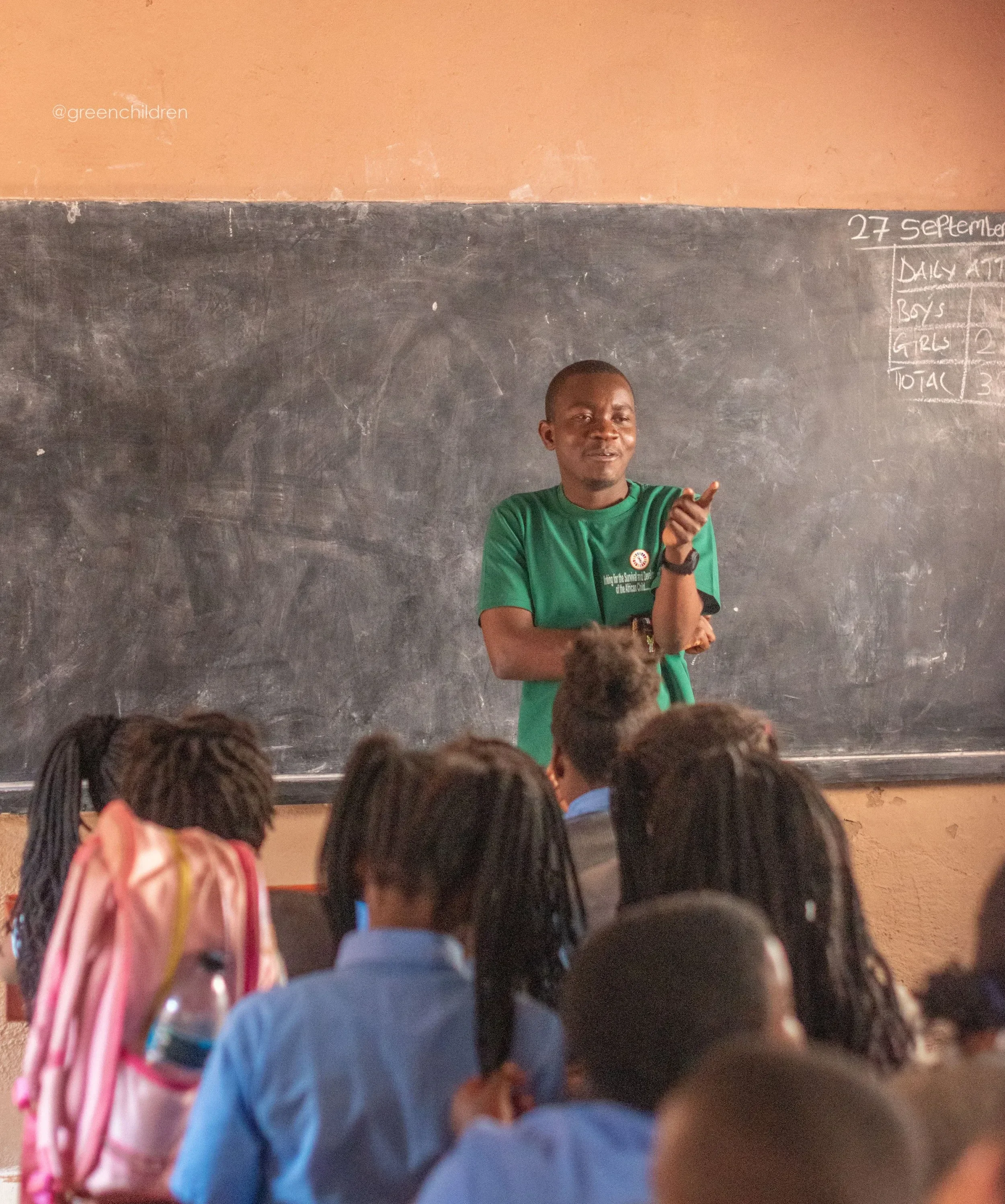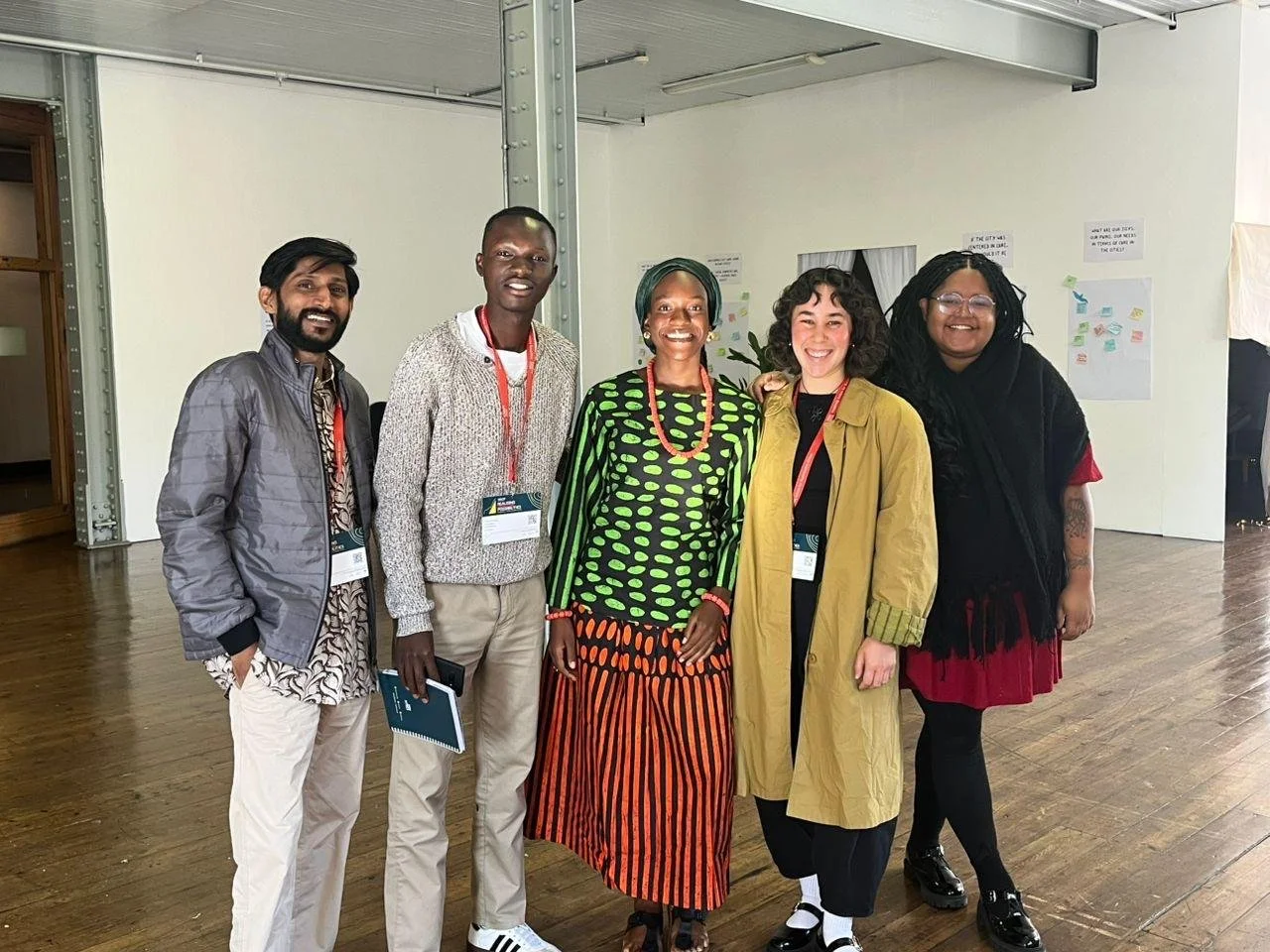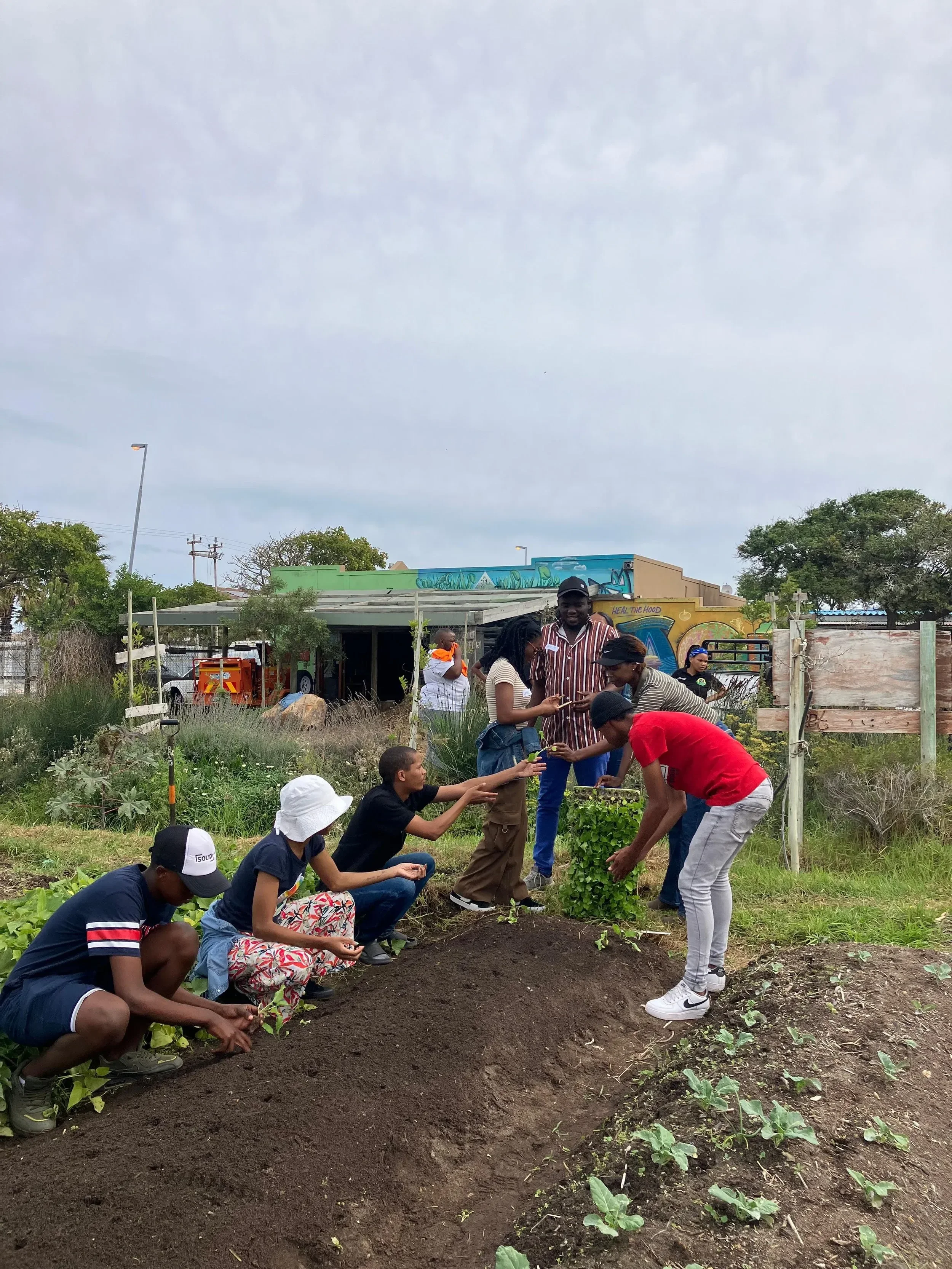Quarterly Newsflash: Hosting Youth-Led Gatherings in 5 African Countries, Building Solidarity Through Storytelling, and Taking Afrocentric Climate Action
A 2025 second-quarter newsflash from the ACA team
We’ve always known that building a strong, youth-led climate justice movement requires collaboration, which is why we named 2025 ‘the year of collaboration’. In the second quarter, we lived up to this intention.
The second quarter of the year was all about strengthening our changemaking networks – meeting people where they are at, exchanging stories and ideas, and committing to shared visions.
For the first time in our five-year history, we spread our wings and travelled to the top 4 countries – outside of South Africa – where our youth networks are the strongest and the largest. In Kenya, Malawi, Zambia, and Zimbabwe, we met our ACA Ambassadors in person for the first time. We got to learn about the impact-driven work they are doing, and hear about the role that ACA has played in their development.
We hosted 6 gatherings to bring them together with the broader youth-led climate community in each country and soak in the strength that comes from being in the same space, with the same drive for a better future.
We know that this is just the beginning, and we’ll continue to nurture the ideas and collaborations that were started this quarter.
Here’s a closer look at what we have been up to in April, May, and June:
Hosting youth-led Solidarity Gatherings in 4 African countries on Afrocentric solutions for sustainable futures
Figuring out how to bring about positive change in the world, especially at the current moment, can feel overwhelming. But, we have always believed that one antidote to the overwhelm is to gather, share, and collaborate.
Afrocentric climate solutions integrate local knowledge systems, cultural practices, and environmental stewardship, which have historically been sidelined in global policy conversations. Since our work is all about building a climate justice movement rooted in Afrocentric solutions, we hosted a series of gatherings in June in Nairobi, Mombasa, Harare, Lusaka and Lilongwe to create spaces for collective dialogue, knowledge exchange, and action planning centered on African indigenous wisdom, cultural practices, and locally-relevant approaches to climate action.
Over 2 days, across 4 countries, 5 cities, and 1 online continental-wide gathering, we brought together over 400 youth to connect with each other, facilitate peer-to-peer learning, and share ideas for how they can take action in their communities, while imagining a more just future.
Despite language barriers, geographic specificities, ages, and cultures, the message was clear: Nothing about us, without us. The outcome was a strengthened sense of community, motivation, pride in local solutions, and many ideas for how to keep this movement going.
“I appreciate the African Climate Alliance team for the efforts you are putting in to ensure that key messages and knowledge about climate change are spread up to the grassroots level and the narratives around climate change are redefined. It was an amazing experience having you around.”
For a glance into the Harare gathering, read this Climate Newsroom article here.
Growing our networks across the continent
As an organisation that began just before a global pandemic, we’re all too familiar with online tools for mobilising. But getting to build a movement in person is an unparalleled joy. During and after hosting the Solidarity Gatherings, we spent time getting to know our ACA Ambassadors better.
After four years of the Ambassador Programme, this was the first time we had ever met the young people who have been climate champions and advocates of ACA’s work. Getting to understand the landscapes in which they live and work, the challenges in the climate justice movement in their countries, and the visions they have for change was a key step in expanding and deepening our continental work.
During our travels in June, we also did some audio recordings with our Ambassadors that will form the foundation of the next African Climate Alliance podcast season, coming soon!
Installing solar panels at a rural school in Malawi
Advocating for a just transition is central to our work. A big part of this advocacy is making sure that as we transition to renewable energy, we also make sure to bridge the energy access gap and address the energy poverty that is characteristic of many African countries.
We wanted to show what this means in practice. So, while some of the ACA team were in Malawi to host the gathering and meet with our Ambassadors, they also partnered with Youth for Environment and Sustainable Development Malawi to install a set of solar panels at a rural school outside of Lilongwe that doesn’t have access to electricity.
The solar panels will be used to power the school and will allow students who are studying for their final primary school exams to be better equipped for the future they deserve.
Building solidarity through storytelling
Stories are at the heart of how we build solidarity with each other across different circumstances. They build understanding, empathy, shared passion, and can be used to raise awareness, create new narratives, mobilise people, and influence public opinion. That’s why we believe that storytelling is a form of organising.
Importantly, stories show us that we can all be experts of our own experience and we can use them to humanise this climate crisis.
With this in mind, at the end of April and early May, we hosted a series of three ‘Solidarity Through Storytelling’ gatherings in Cape Town, Johannesburg, and online. Across the gatherings, nearly 200 people came together to learn how to make zines that tell their own stories, and listen to a lineup of speakers who shared how the climate crisis has affected their lives, what inspired them to take action, solutions that they are passionate about, and what makes their story unique.
Through the sharing of personal stories and anecdotes, what became clear was that taking climate action looks different for everyone, and that should be celebrated. Some people spoke of growing their own food, finding solutions to water scarcity, or documenting climate impacts.
These gatherings were part of our reimagined Action programme that aims to showcase different ways of taking climate action outside of protest action.
Sharing how we used the courts for climate justice in the #CancelCoal court case
Since our Cancel Coal court case victory in December 2024, we’ve been asked: What are your learnings from using the courts to call for climate justice? So, to answer some of these questions and share our learnings on how we took the lived experiences of everyday people and turned them into the first youth-led climate change court case against the South African government, we hosted a Youth Month webinar.
The webinar was in collaboration with groundWork, Vukani Environmental Movement, and Centre for Environmental Rights. It covered the key moments of the case, the challenges, the opportunities, and what this all means moving forward.
“Young people have been institutionally betrayed and sidelined in conversations on climate. That is why this court case took on the challenge of fighting for their futures.”
9 Youth-Led Climate Projects on Literacy, Storytelling, and Action
Our 2024/2025 Ambassador cohort recently completed their programme with the implementation of their ambassador projects. Many of these projects function in the categories of climate literacy; educating other young people in their communities about climate change, storytelling for climate change; using storytelling to build the next generation of climate activists through the power of stories and finally using that knowledge to build action-based movement to combat climate change.
To learn more about the projects of our latest Ambassador cohort, read here.
Deepening our impact with our graduated ambassador projects
After graduating from the one-year Ambassador Programme, we aim to continue our support for each Ambassador’s change-making initiatives with our Opportunity Fund. The Opportunity Fund is intended to support the sustainability and ongoing efforts of ACA Ambassadors. This quarter, we saw two of these graduated ambassador projects come to life.
Simeon Kalua is working on empowering the next generation of climate leaders through his Children Learning Climate project, which launched at Phereni Primary School in Malawi. Through interactive sessions, storytelling, games, and songs, they’re teaching kids about climate change and inspiring collective action. Over the past 3 months, they’ve worked with 5 schools in Lilongwe Rural West District to deliver interactive and engaging sessions that foster climate literacy and leadership.
In other news, another Malawian graduate Ambassadors, Symon Satiele, ran a project which saw pupils from Chimwasongwe Primary School in Lilongwe plant 100 trees in their surrounding neighborhood. The community has had a plant-a-tree project that has been active since 1976, but over the last couple of years the trees have been neglected. The school has committed to taking responsibility to nurture the trees. Symon says that the initiative aims to promote environmental sustainability and encourage community involvement in tree planting and care.
Exploring what Afrocentric climate action means
In our April and May online Back2Basics education workshop and ACA Dialogue, we deep-dived into Climate Reparations and Restorative Justice for Africa. We explored what restorative justice looks like and connected with others working towards climate justice in Africa.
For the ACA Dialogue panel discussion, we were joined by Natalie Mukundane Kyamutetera from the African Activists for Climate Justice (AACJ) initiative at the African Youth Commission (AYC) and Charles Mkoka, who is the Executive Director of the Coordination Union for Rehabilitation of the Environment (CURE) in Malawi.
Thought leadership in the media
We have always believed in using media as a way to make room for young people’s voices to be included in the way we shape climate and social justice narratives. This quarter, we wrote and published an op-ed with Daily Maverick titled ‘Urgent action needed for justice and jobs in South Africa’s energy transition’. The article outlines research-informed arguments as to why the transition away from coal offers the opportunity for large-scale job creation in more equitable industries. This pushes back at the narrative that moving away from coal means risking the jobs of current and future generations.
Secondly, we ran five sessions with the ACA Writing Circle to collaboratively write an op-ed, published by Climate Newsroom, on how NDCs are shaping the futures of young people on the continent – and why our voices need to be included in national climate action plans.
Strengthening youth advocacy on the NDCs
2025 is the year of the Nationally Determined Contributions. Nationally Determined Contributions are climate action plans created by countries to reduce greenhouse gas emissions and adapt to the changes that are already occurring due to climate change, mandated by the Paris Agreement.
With each country’s plan being due in September, as a step towards collaborative global efforts to tackle the climate crisis, we believe that youth on the continent play a vital role in having their voices heard.
Continuing our series of consultations in the first quarter, we held two more NDC consultations specifically aimed at youth in Congo, Malawi, South Africa, Zambia, Kenya, Tanzania, and Uganda. These were used to consolidate insights that have been turned into a comprehensive NDC policy submission. And, and Advocacy Tools Lab that equipped attendees with various advocacy skills – from using social media to writing op-eds – that they can use to advocate for what they’d like to see in the NDCs.
Increasing South-South solidarity at the RISE Africa festival
After months of planning, we co-hosted a fishbowl session as part of the RISE Africa Festival alongside youth from India, Kenya, and Brazil, titled ‘Our futures, our stories: Ideas, imaginaries, and climate perspectives from youth in the Global South’. We explored strategies for fostering inclusive, youth-led advocacy by addressing key themes such as intersectionality, climate education, and mobilizing young people in urban and rural contexts. Plus, we examined how storytelling — rooted in indigenous practices of meaning-making and knowledge sharing — can be a powerful tool for climate advocacy.
Understanding how climate change is affecting our food systems
Climate change worsens food and land injustices through changing temperatures, which disrupt growing seasons due to extreme weather events such as droughts and floods. This affects crop yields, disrupts planting and harvesting schedules, and damages infrastructure.
We want to make it clear that climate change isn’t a distant threat, but close to home. So, in April, we held an in-person educational workshop at a working polyculture farm in Cape Town to learn all about how indigenous and sustainable small-scale farming practices are the solution.
Continuing our digital climate literacy campaign
At the heart of our work will always be a commitment to accessible climate literacy – breaking down the big terms so that everyone understands how they relate to their lives. With our #LiteracyMondays campaign, we take a moment each Monday to break down a climate term that we feel needs to be explained so that we can all have more inclusive conversations.
Publishing our latest Annual Report
Looking back to look forward is an important part of our work. If you’d like to learn more about what we have been up to in the past financial year and how this is informing the future trajectory of our work, you can read our latest 2024/2025 Annual Report, published here.

